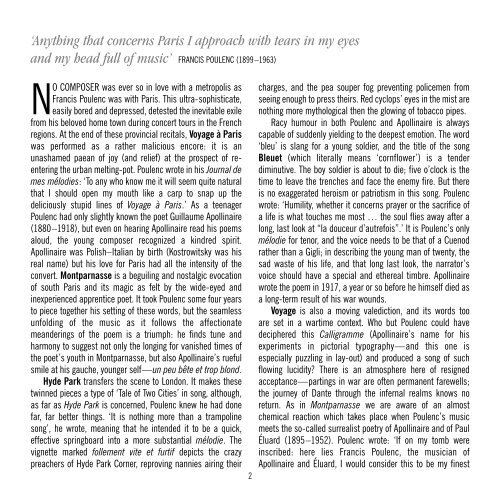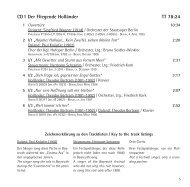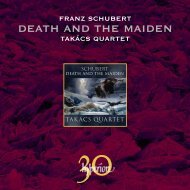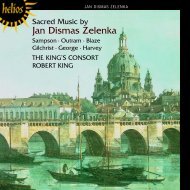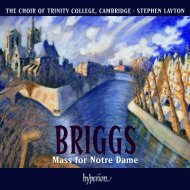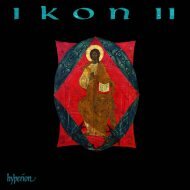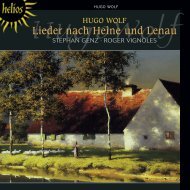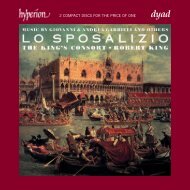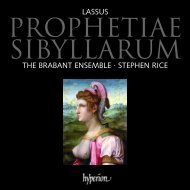Téléchargez le livret intégral en format PDF ... - Abeille Musique
Téléchargez le livret intégral en format PDF ... - Abeille Musique
Téléchargez le livret intégral en format PDF ... - Abeille Musique
You also want an ePaper? Increase the reach of your titles
YUMPU automatically turns print PDFs into web optimized ePapers that Google loves.
‘Anything that concerns Paris I approach with tears in my eyes<br />
and my head full of music’ FRANCIS POULENC (1899–1963)<br />
N<br />
O COMPOSER was ever so in love with a metropolis as<br />
Francis Pou<strong>le</strong>nc was with Paris. This ultra-sophisticate,<br />
easily bored and depressed, detested the inevitab<strong>le</strong> exi<strong>le</strong><br />
from his beloved home town during concert tours in the Fr<strong>en</strong>ch<br />
regions. At the <strong>en</strong>d of these provincial recitals, Voyage à Paris<br />
was performed as a rather malicious <strong>en</strong>core: it is an<br />
unashamed paean of joy (and relief) at the prospect of re<strong>en</strong>tering<br />
the urban melting-pot. Pou<strong>le</strong>nc wrote in his Journal de<br />
mes mélodies: ‘To any who know me it will seem quite natural<br />
that I should op<strong>en</strong> my mouth like a carp to snap up the<br />
deliciously stupid lines of Voyage à Paris.’ As a te<strong>en</strong>ager<br />
Pou<strong>le</strong>nc had only slightly known the poet Guillaume Apollinaire<br />
(1880–1918), but ev<strong>en</strong> on hearing Apollinaire read his poems<br />
aloud, the young composer recognized a kindred spirit.<br />
Apollinaire was Polish–Italian by birth (Kostrowitsky was his<br />
real name) but his love for Paris had all the int<strong>en</strong>sity of the<br />
convert. Montparnasse is a beguiling and nostalgic evocation<br />
of south Paris and its magic as felt by the wide-eyed and<br />
inexperi<strong>en</strong>ced appr<strong>en</strong>tice poet. It took Pou<strong>le</strong>nc some four years<br />
to piece together his setting of these words, but the seam<strong>le</strong>ss<br />
unfolding of the music as it follows the affectionate<br />
meanderings of the poem is a triumph: he finds tune and<br />
harmony to suggest not only the longing for vanished times of<br />
the poet’s youth in Montparnasse, but also Apollinaire’s rueful<br />
smi<strong>le</strong> at his gauche, younger self—un peu bête et trop blond.<br />
Hyde Park transfers the sc<strong>en</strong>e to London. It makes these<br />
twinned pieces a type of ‘Ta<strong>le</strong> of Two Cities’ in song, although,<br />
as far as Hyde Park is concerned, Pou<strong>le</strong>nc knew he had done<br />
far, far better things. ‘It is nothing more than a trampoline<br />
song’, he wrote, meaning that he int<strong>en</strong>ded it to be a quick,<br />
effective springboard into a more substantial mélodie. The<br />
vignette marked fol<strong>le</strong>m<strong>en</strong>t vite et furtif depicts the crazy<br />
preachers of Hyde Park Corner, reproving nannies airing their<br />
charges, and the pea souper fog prev<strong>en</strong>ting policem<strong>en</strong> from<br />
seeing <strong>en</strong>ough to press theirs. Red cyclops’ eyes in the mist are<br />
nothing more mythological th<strong>en</strong> the glowing of tobacco pipes.<br />
Racy humour in both Pou<strong>le</strong>nc and Apollinaire is always<br />
capab<strong>le</strong> of sudd<strong>en</strong>ly yielding to the deepest emotion. The word<br />
‘b<strong>le</strong>u’ is slang for a young soldier, and the tit<strong>le</strong> of the song<br />
B<strong>le</strong>uet (which literally means ‘cornflower’) is a t<strong>en</strong>der<br />
diminutive. The boy soldier is about to die; five o’clock is the<br />
time to <strong>le</strong>ave the tr<strong>en</strong>ches and face the <strong>en</strong>emy fire. But there<br />
is no exaggerated heroism or patriotism in this song. Pou<strong>le</strong>nc<br />
wrote: ‘Humility, whether it concerns prayer or the sacrifice of<br />
a life is what touches me most … the soul flies away after a<br />
long, last look at “la douceur d’autrefois”.’ It is Pou<strong>le</strong>nc’s only<br />
mélodie for t<strong>en</strong>or, and the voice needs to be that of a Cu<strong>en</strong>od<br />
rather than a Gigli; in describing the young man of tw<strong>en</strong>ty, the<br />
sad waste of his life, and that long last look, the narrator’s<br />
voice should have a special and ethereal timbre. Apollinaire<br />
wrote the poem in 1917, a year or so before he himself died as<br />
a long-term result of his war wounds.<br />
Voyage is also a moving va<strong>le</strong>diction, and its words too<br />
are set in a wartime context. Who but Pou<strong>le</strong>nc could have<br />
deciphered this Calligramme (Apollinaire’s name for his<br />
experim<strong>en</strong>ts in pictorial typography—and this one is<br />
especially puzzling in lay-out) and produced a song of such<br />
flowing lucidity? There is an atmosphere here of resigned<br />
acceptance—partings in war are oft<strong>en</strong> perman<strong>en</strong>t farewells;<br />
the journey of Dante through the infernal realms knows no<br />
return. As in Montparnasse we are aware of an almost<br />
chemical reaction which takes place wh<strong>en</strong> Pou<strong>le</strong>nc’s music<br />
meets the so-cal<strong>le</strong>d surrealist poetry of Apollinaire and of Paul<br />
Éluard (1895–1952). Pou<strong>le</strong>nc wrote: ‘If on my tomb were<br />
inscribed: here lies Francis Pou<strong>le</strong>nc, the musician of<br />
Apollinaire and Éluard, I would consider this to be my finest<br />
2


